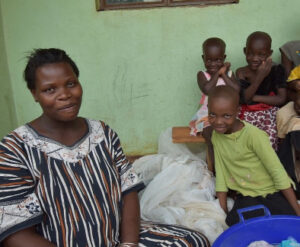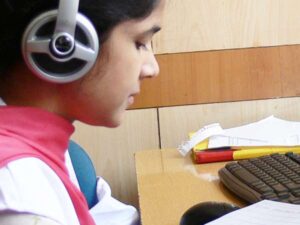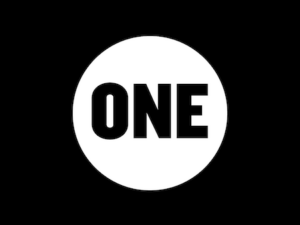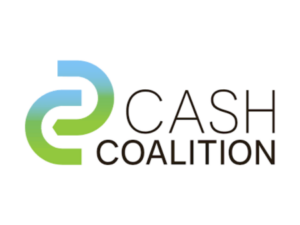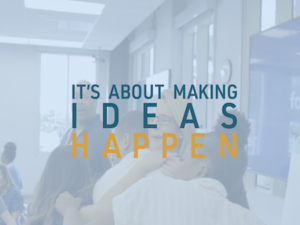The Institute for Development Studies and Practices, Pakistan runs courses that empower young people and women, in particular, to gain new skills that will allow them to pursue meaningful careers, earn a secure income, and give back to their communities, particularly in the Balochistan Province of Pakistan.
Quratulain Bakhteari of The Institute for Development Studies and Practices spoke with Ruth Terry on July 6, 2023. Click here to read the full conversation with insights highlighted.
Ruth Terry: Can you please start by telling me your name, the name of your organization, and describe the problem that your organization is addressing and how you’re responding to it?
Quratulain Bakhteari: My name is Quratulain Bakhteari, and I’m from Pakistan originally. I am from Karachi, the urban center of Pakistan. But about 40 years ago, I opted to be in Balochistan, a province southwest of Pakistan, having its largest border with Afghanistan and Iran. I was asked by the government to help them in their education and court, and it was in that vein that I fell in love with Balochistan. I love the province and the people. The name of our organization that I founded in Balochistan while working for the people there and understanding them is Institute for Development Studies and Practices Pakistan. We founded it in 1998.
What we believe in and what I personally aim for in my work is to work and focus on socio-economically, politically excluded people, and people excluded from the mainstream of a country’s national development. In Balochistan it happens to be the whole province that is socioeconomically, politically, in all possible ways that you can think of, it is isolated from the rest of Pakistan, and that makes it a very poor and vulnerable part of Pakistan. That’s one reason that we are in Balochistan and our work is focused on Balochistan as a part of Pakistan, but the whole province is really not understood by national policies or by national governance that the province is also part of Pakistan.
Ruth Terry: Why is it so isolated?
Quratulain Bakhteari: For a number of reasons. It has a very defined tribal culture, rooted in its history and traditions, and it has its ways of addressing change in development and needs and situations, which often do not match with the national governance. The national government is more interested in the provincial minerals and riches, the province is so rich with natural resources in its ground. That is what is very important, but somehow the people of the province were ignored. A typical situation, like Nigeria, like other countries where the resources are much more important than the people. It’s the same scenario.
Ruth Terry: Can you tell me a little bit more about the specific services you provide and what’s the main kind of demographic of the people that you’re serving?
Quratulain Bakhteari: We are focused on the most excluded and the most vulnerable people, which happens to be almost everyone in the whole province. Our focus is mainly on the youth and on women, which also happen to be the majority of the population of the province. At one level, they lack education and experiences in development and growth. At another level, they themselves are trapped in traditional religious hegemonies, which controls them, especially women, and physically it’s a mountainous terrain with isolated communities across vast distances.
It’s an area as big as France, but the population is scattered. It is one fourth of Pakistan’s population, it is very tribal and is very limited because of their educational level and being [left out of] the national developmental processes. Things have developed since I first came to Balochistan in 1987, but this was what I saw, and my motive was to be connected. What we have been doing since 1998, since the Institute for Development Studies Pakistan was created, is engaging with disengaged youths and young people. We found that there are not enough practices in meaningful institution buildings. There are a lot of tribal ways of doing things, but not modern institutions, which is important because it is through the institution you can break through isolation, right?
We created our physical national headquarter in Balochistan, which sent a message through the nation and the government that our roots, all of our investments, everything is in Balochistan. Although we are national, so anyone can come and take benefits from our systems, they have to come to Balochistan, stay with us, and work with us here to get it. That is a fundamental way we have established ourselves and we are very happy and proud of that choice.
Then, at another level, understanding what the effectiveness is of the work that we have done till now. For women’s empowerment, to begin with, we did several courses for women in the districts, and we did not put any standards to be applied, like they have to be schoolgirls or they have to have certificates. Anyone who can read and write can join, and we created a critical mass of 300 women graduated from the local tribal communities across Balochistan, and then those 300 women got us closer to the issues of women, and that led us to start a community-based midwifery program for the girls to become midwives, because mother’s deaths, maternal mortality, is the highest in the world in Balochistan. Of every hundred thousand births, 25 years ago, it used to be more than 700 mothers would die. Now they claim that it has reduced, and now it is 200, which is a doubtful figure, but it’s a figure that the government is narrating. But still, that is high. So, we dedicated ourselves to foster the leadership of girls and women in the communities, by creating professional community midwives as community leaders in maternal healthcare, because that was the need of the community, and in the last 15 years, more than 400 girls have become functional, highly effective community midwives, who have delivered almost 25,000 babies in 15 years, with one casualty, one death of the mother, because she arrived late. She was not going for post examinations, so nobody knew her situation. This has made the women so strong that the whole family and the male family members are now being identified socially through the midwife. “He is so and so’s brother, he’s so and so’s father”. The identity is marvelous and the women are earning it, they are entrepreneurs. She functions from her own home, and does safe childbirths in the homes of the mother who needs it. We train them and we give them maternity kits that they carry with them. It’s a great revolution.
The other thing is that in the last 25 years, more than 8,000 young men and women have graduated through our courses in development, practicing critical thinking about why things are the way they are, and how they can be changed, and who’s responsible, and why. So, these 8,000 people have been very effective. They have joined the public and private sector, which before they would not qualify for. They didn’t know how to go in for interviews.
Ruth Terry: Can you tell me a little bit about the program that they go through?
Quratulain Bakhteari: Yeah, it is a minimum six month course, and those who want to continue with us can go up to five years. Then they join us and they learn on the job with us, and they graduate at the CEO level. The courses cover seven thematic areas. Horizontally, if you see a course, it has seven themes like inner self-development, self-empowerment, critical pedagogy and education. The courses cover the issues with it and what it should be, history and resistance, media and its hegemony, talk about it through a gender lens. Political economy, and in the end, sustainable living and livelihood.
I have developed the program into core courses. We have built core courses based on the latest 25 years of our practices into the university of community development that we have become. These are the courses we are now offering. Vertically, how do we do it? Vertically, these thematic areas are connected. Again, number one, with your own self practices, getting aware of your own self, and connecting your own internal awareness, reconnecting with your family as an aware person, rather than angry, disappointed, unhappy or whatever baggage you are carrying.
Getting rid of that and reconnecting with your family, then, with family support, you can connect with your immediate community and do community based development and community action. What change do you want to bring in the lives of others? And learn and practice it and do it as research, whatever idea you want to launch. Then they become very good on the internet, and they do become very efficient and can connect virtually with the world, people like yourself in the world. So, there are four levels where they practice those seven themes.
Ruth Terry: It sounds almost like concentric circles.
Quratulain Bakhteari: Yes. It’s around the individual or the person at the center and it goes out from himself, then his family, then the community. But it is all around him or her.
Another of our programs that has been effective is our work with landless and poor farmers in five districts, 335 farmers we are connected with, and we are helping them get free from high interest loans and create their own seed bank. We want them to resist going hybrid and instead go organic. Right now, these 335 farmers have gone through one crop, and a few are going through the second, and they have created their seed bank with the first crop. It’s a huge amount of seeds that each farmer now has so next year they will not need to buy seeds because they will have seeds for all four crops of the year. The money that will be generated or saved will be used in the social economy, social and home and women and livestocks and other family development and a better living than what they’re living today.
One very interesting thing that has come up also is that our whole campus and the way we function is environmentally guided. Our entire campus on four acres of land is made from mud, and the community people who know this skill of mud construction, they made it for us, and it is a little bit modern, but the community’s methods were used in this construction, the mud and the learnings and everything, and we learned a lot.
We create our energy from wind, from solar, we harvest rainwater, and we are raising our own sheeps, our own chickens, and we are growing our own vegetables, and trying to be as self-sufficient as possible. It is a university campus where people come, study, and live, and try their concepts. Up until now, more than about 100 or 200 people have been trained in finance management and administration, logistics, and how to run offices, and they are now employed in different departments, different non-government sectors in the province. They are helping build institutions in the province. We are very proud of our people.
We often encounter problems because we keep losing our people and we have to train new ones. But, that’s what we are. We are advisors now. Today we are advising the government in its policy planning, and the government has taken our midwifery model as a policy for their own maternal healthcare program. We have shifted the policy, because the community midwives were excluded from the mainstream maternal healthcare system of the government. They were at the last level and never given any opportunity to practice in the labor room of the hospital because they were considered as no more than cleaning women. But now, they will be working in government hospitals and labor rooms to practice their skills. Before they used to come back to the community and set up their own spaces, so this is a major shift.
For 15 years we had to demonstrate and finally it has happened. Now, it’s a government policy with a lot of grace and ownership, and we built a very good relationship with the government. The government has leased us four acres of land to build our campus. The trust and credibility is excellent that we have achieved, in a very alienated and mistrusting part of Pakistan. By federal and national systems, we are rated as one of the best organizations of Balochistan by an independent evaluation system, which the international donors and the government equally acknowledge. It is called the Pakistan Center for Philanthropy. We have MOUs with the universities now, and with government departments for their programs, so we often receive their officers and their people for seminars and trainings and advising. Each program that I have talked about has detailed processes and methodologies, and are well documented.
Ruth Terry: Now that I know a little bit more about your programs and the different work that you’re doing, maybe we can talk a little bit about some of the lessons and the insights you’ve had over the years building the program. What kind of advice would you give to someone who wants to replicate what you did or who wants to set up a similar program? What lessons can you share?
Quratulain Bakhteari: Sure, there are some generalized lessons which can be used in any conditions, and then it has to be contextualized also from where I’m coming from. But, there are vulnerable people across the globe. The way this system, globally and nationally, systematically works to exclude people rather than to create inclusive policies, or standards. Whatever is being created in the name of so-called development is becoming so exclusive, more and more people get excluded when they try to qualify for it.
One lesson has been that any change maker must start their work with the excluded and vulnerable. Not as sympathetic or charity, but as equal human beings, believing that they have equal intellect and they have whatever is required, they are well-equipped. Not to underestimate them and then become a do-gooder and think that you can bring change. You can’t bring change, they bring change.
That is something very important, and it has to start with an intellectual basis. Every human being has an intellectual basis. They form an intellectual and educational basis that triggers and touches the inner self development process. If the inner self is left quiet, left at one side, and we function and do great things externally, get great results, that is not going to bring lasting change. Rooted change and impact takes focus, sustained and continuous work, with a single-minded focus and continuity.
On the physical base, get yourself rooted. You can’t do it virtually. You have to be rooted physically there, live there, change your space, be there physically. Because then you understand a lot and you think a lot and you reflect a lot and then you change in the process. If you don’t change in the process, you cannot expect anybody anyplace to change. If it is empowering change, to change the system, the values, you have to start where the humans are and a person’s inner self. Connect with the inner self of the person.
Another thing I have learned is that the formal education system is terribly limited. It is not giving the answers for which our young people spent years and years of their lives seeking, putting huge amounts of money in it, and the amount of personal and emotional sacrifices they make to achieve those certifications and degrees. Eventually it’s not worth it, because it is quickly becoming irrelevant, for what the requirement is. So, I find this is very important to give formal education and to receive formal education or expect results of formal education with all its limitations. It is no longer a key to a successful life. That’s another lesson.
Ruth Terry: As you’ve been building this project, over such a long period of time, is there anything that you tried that just didn’t work? That you were just like, “This failed.” And what did you learn from that?
Quratulain Bakhteari: There are always obstacles that you keep overcoming and overcoming, and you just keep going. That is what life has been. There are times when things did not work, but I never let it go, I let it simmer at the site and I started working for it from a much deeper place then.
For example, these midwifery girls would not have been there if, 10 years ago, I had not started the girls education program. So, directly going for the midwifery program and then coming up and saying, “Oh, there are no girls educated enough to become a midwife.” It is not an issue with the program, it is because I hadn’t done the base work. So, I worked first to establish 2200 government schools. From 1991 until 1997, about 200,000 girls enrolled in these schools. When I went back to these communities in 2010 looking to create midwives, they were there.
Ruth Terry: So, you created your own pipeline?
Quratulain Bakhteari: Yes. Otherwise how can you? Sometimes things take longer. Sometimes we have missed a step or sometimes our own assessment, what we thought should be done this way or that way, has problems.
Ruth Terry: Are there any other challenges?
Quratulain Bakhteari: I always fell on my face when I undermined the other person’s sensitivity and experiences and their own tribal setup that they had for thousands of years. That often made me leave the area. Many times it happened. I’m still an urban person, and educated with a PhD from England, so my mindset still makes mistakes.
Ruth Terry: What are some other challenges, aside from funding, that maybe you’re currently facing or haven’t been able to overcome yet? What are some problems that you’re still working on?
Quratulain Bakhteari: Yeah, funding is a core issue, and I would like to talk about it, but not funding in the sense of, “Just give me the money.” Not that way. I want people and organizations and new funders who are serious to examine us because they’re starting something new in Pakistan. They take us as if we are beginners, while we have the policies and solutions and methodologies and systems and institutions, we are ready to go to scale with sustainability. We should be helped by Pakistan and internationally, wherever, to help build our endowment, which is what we need to help sustain us meaningfully and impactfully. And scaling also, instead of going from donor to donor, proposal to proposal, organization to organization. Then it will not be ad hoc, short term planning.
Ruth Terry: So, it is more than just needing a certain amount of money, it is building capacity and the ability to scale to a point where it’s sort of self-sufficient and sustainable? Getting to that next stage of organizational growth.
Quratulain Bakhteari: I now get tired when I’m taken as a starter or a beginner or someone who’s just starting something. I get tired. The other thing that I want is international placements for my graduates or my interns and the people who are associated with us in the learning process and practices so they can experience modern ways of doing things. If I can get international spaces for three, four, six months, I want to be linked with those opportunities to help our young people get the opportunity to travel and to see other cultures, globally, rather than just their own traditions.
Ruth Terry: What do you think is most needed from other actors or partners in order to make that happen?
Quratulain Bakhteari: We need like-minded organizations or institutions or individuals who are as crazy as I am or we are. Number one, to help us or partner with us as a university of community development so we don’t have to take a Pakistani charter, because Pakistani laws are the biggest obstacles for us to go any further. The approvals are so tedious, and the policies, especially for Balochistan, are so tough that you just end up giving up and not doing anything. So, I want to partner with similar institutions for our university, the way we are, and they can give us the credit for it, for the certifications and for their work.
We work together and we develop a partnership of learning, which is equal to any university, but not the conventional university, not with the way universities are today. We are not doing bachelors and masters degrees. We don’t have money for young people to travel and stay, so if that can be facilitated that would be a major breakthrough. We are now an internationally accredited institution. So, if we can have that and our endowment and our individuals traveling to learn and coming back to change their communities and their women, young people and their economy, that will be brilliant.
Ruth Terry: Is that the kind of work that you are hoping happens kind of in the next five years, in the near horizon?
Quratulain Bakhteari: Yes, yes. These three things must happen in the next five years, because if it doesn’t happen, you know how it is, if you don’t eat something when it is ripe, it goes sour and you have to throw it out. So, we are at that point. If we don’t do it in the next five years, then we will just be doing the same thing and not viraling out and flying out.
Ruth Terry: So, there’s a real urgency?
Quratulain Bakhteari: If possible, yes. Another obstruction and challenge has been the environmental challenge – the floods, the earthquakes – they take us a step backward because our property gets damaged. We need more solar panels for energy for our labs and electricity and internet. We have the internet, but it’s limited. We have to buy everything. The government doesn’t give us anything, so that is another challenge that we always face and struggle with. Impact from the environment.
Ruth Terry: That’s actually all of my questions. It’s been so wonderful talking to you, and I’m just so inspired by your work. Thank you.
Click here to read the full conversation with insights highlighted.
Ruth Terry is an award-winning social impact writer based in Istanbul, Turkey, with bylines in Al Jazeera, BBC Travel, National Geographic, NBC Think, The New York Times, The Washington Post, Time, and more. Writing across topics and genres, she has covered everything from race to roller skating through a lens of social justice and equity.
* This interview has been edited and condensed.
Find other organizations working on social innovation in Pakistan.


